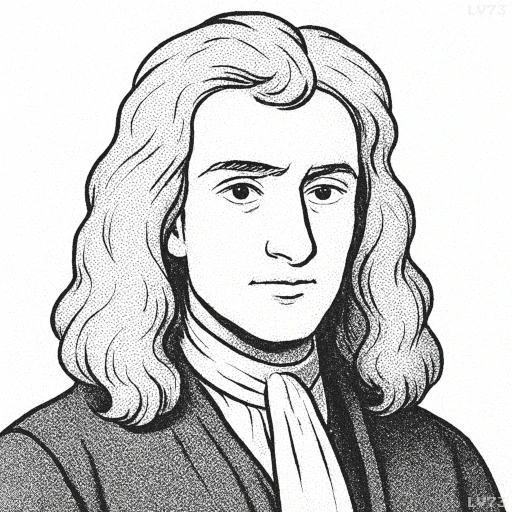“God is the same God, always and everywhere. He is omnipresent not virtually only, but also substantially, for virtue cannot subsist without substance.”

- January 4, 1643 – March 31, 1727
- Born in England (UK)
- Natural philosopher, mathematician, physicist, astronomer, theologian
table of contents
Quote
“God is the same God, always and everywhere. He is omnipresent not virtually only, but also substantially, for virtue cannot subsist without substance.”
Explanation
In this quote, Isaac Newton emphasizes the omnipresence of God, asserting that God is not only present everywhere in a virtual sense (as a general or abstract influence) but also substantially present, meaning that God’s presence is real and concrete. Newton is arguing that God’s divine essence fills the entire universe in a way that is both spiritual and substantial, asserting that virtue, or divine qualities, cannot exist without a tangible or substantial essence to support them. This idea suggests that God’s presence is not just an abstract concept or a distant influence, but rather an actual, fundamental reality that sustains and permeates all things.
Newton’s theological view reflects a belief in a God who is intimately involved in the workings of the universe, and whose divine nature is present in all things. This view contrasts with more deistic perspectives, which held that God created the universe and then remained distant or inactive. Newton’s view, instead, underscores a belief in a God who is not only the Creator but also actively present in His creation, sustaining it and imbuing it with purpose and order. His emphasis on the substantial presence of God also implies that the natural world, which Newton studied so deeply, is a direct manifestation of God’s divine substance.
In modern terms, Newton’s view on God’s omnipresence may resonate with certain philosophical or theological discussions about the nature of God’s relationship to the universe. In particular, it aligns with certain strands of Christian theology that emphasize God’s immanence—the belief that God is present and active in the world—rather than His transcendence, or separation from it. Newton’s assertion challenges the more abstract, distant view of God and suggests that divine substance is intertwined with creation in a way that supports both the physical and spiritual realms. This notion continues to shape discussions in theology, where questions about God’s presence, nature, and interaction with the world are central to understanding the divine.
Would you like to share your impressions or related stories about this quote in the comments section?
